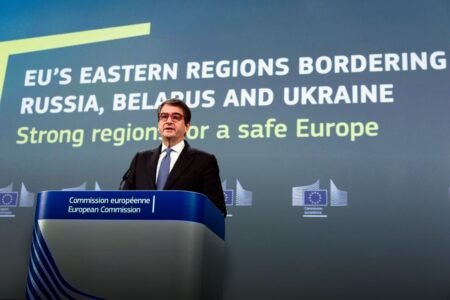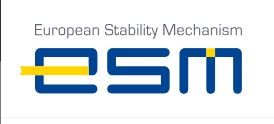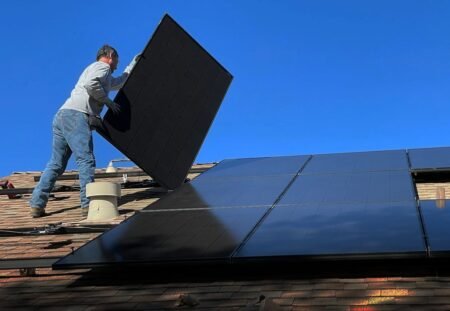(BRUSSELS) – In light of Russia’s brutal war of aggression against Ukraine, and reported atrocities committed by Russian troops, the EU imposed Friday a fifth set of economic and individual sanctions against Russia.
The agreed package includes a series of measures intended to reinforce pressure on the Russian government and economy, and to limit the Kremlin’s resources for the aggression.
“These latest sanctions were adopted following the atrocities committed by Russian armed forces in Bucha and other places under Russian occupation,” said the EU’s foreign policy chief Josep Borrell: “The aim of our sanctions is to stop the reckless, inhuman and aggressive behaviour of the Russian troops and make clear to the decision makers in the Kremlin that their illegal aggression comes at a heavy cost.”
The package comprises:
- a prohibition to purchase, import or transfer coal and other solid fossil fuels into the EU if they originate in Russia or are exported from Russia, as from August 2022. Imports of coal into the EU are currently worth EUR 8 billion per year.
- a prohibition to provide access to EU ports to vessels registered under the flag of Russia. Derogations are granted for agricultural and food products, humanitarian aid, and energy.
- a ban on any Russian and Belarusian road transport undertaking preventing them from transporting goods by road within the EU, including in transit. Derogations are nonetheless granted for a number of products, such as pharmaceutical, medical, agricultural and food products, including wheat, and for road transport for humanitarian purposes.
- further export bans, targeting jet fuel and other goods such as quantum computers and advanced semiconductors, high-end electronics, software, sensitive machinery and transportation equipment, and new import bans on products such as: wood, cement, fertilisers, seafood and liquor. The agreed export and import bans only account for EUR 10 billion and EUR 5.5 billion respectively.
- a series of targeted economic measures intended to strengthen existing measures and close loopholes, such as: a general EU ban on participation of Russian companies in public procurement in member states, the exclusion of all financial support to Russian public bodies. an extended prohibition on deposits to crypto-wallets, and on the sale of banknotes and transferable securities denominated in any official currencies of the EU member states to Russia and Belarus, or to any natural or legal person, entity or body in Russia and Belarus.
At the same time, the Council has decided to sanction companies whose products or technology have played a role in the invasion, key oligarchs and businesspeople, high-ranking Kremlin officials, proponents of disinformation and information manipulation, systematically spreading the Kremlin’s narrative on Russia’s war aggression in Ukraine, as well as family members of already sanctioned individuals, in order to make sure that EU sanctions are not circumvented.
A full transaction ban is also imposed on four key Russian banks representing 23% of market share in the Russian banking sector. After being de-SWIFTed these banks will now be subject to an asset freeze, thereby being completely cut off from EU markets.
EU restrictive measures in response to the crisis in Ukraine








